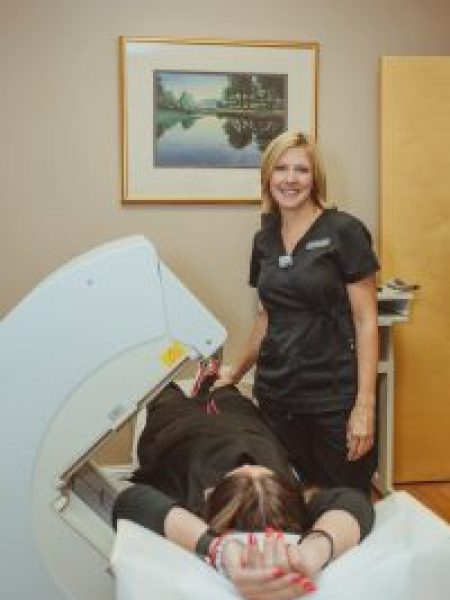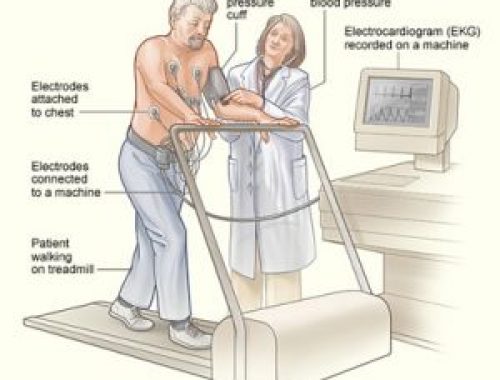
Nuclear stress testing – of the heart provides a very sensitive noninvasive evaluation of blood flow to the heart through the coronary arteries. Whenever the heart is stressed, such as with exercise, more blood must flow through the coronary arteries to provide the necessary energy for the heart to continue to function. If a blockage exists in one or more coronary arteries (the “plumbing system” of the heart), then the heart will not be supplied with the sufficient amount of blood required to keep up with the physical stress on the body. If this condition is left uncorrected, a heart attack or even death may ensue. The nuclear stress test uses a radioactive tracer to follow the flow of blood through the coronary arteries, and by comparing the flow at rest to the flow after exertion, blockages in the arteries can be detected, prompting the ordering of lifesaving cardiac procedures
Nuclear Stress testing can be accomplished using a treadmill, or in patients who cannot exercise, with intravenous medication essentially to stimulate exercise while flat on a table. It is appropriate for coronary artery disease screening, for evaluation of chest pain, and for screening or evaluation of abnormal symptoms such as chest pain or shortness of breath after cardiac procedures such as angioplasty, stenting, and bypass surgery. It is also appropriate when an electrocardiogram is uninterpretable for coronary artery disease due to certain baseline abnormalities.

